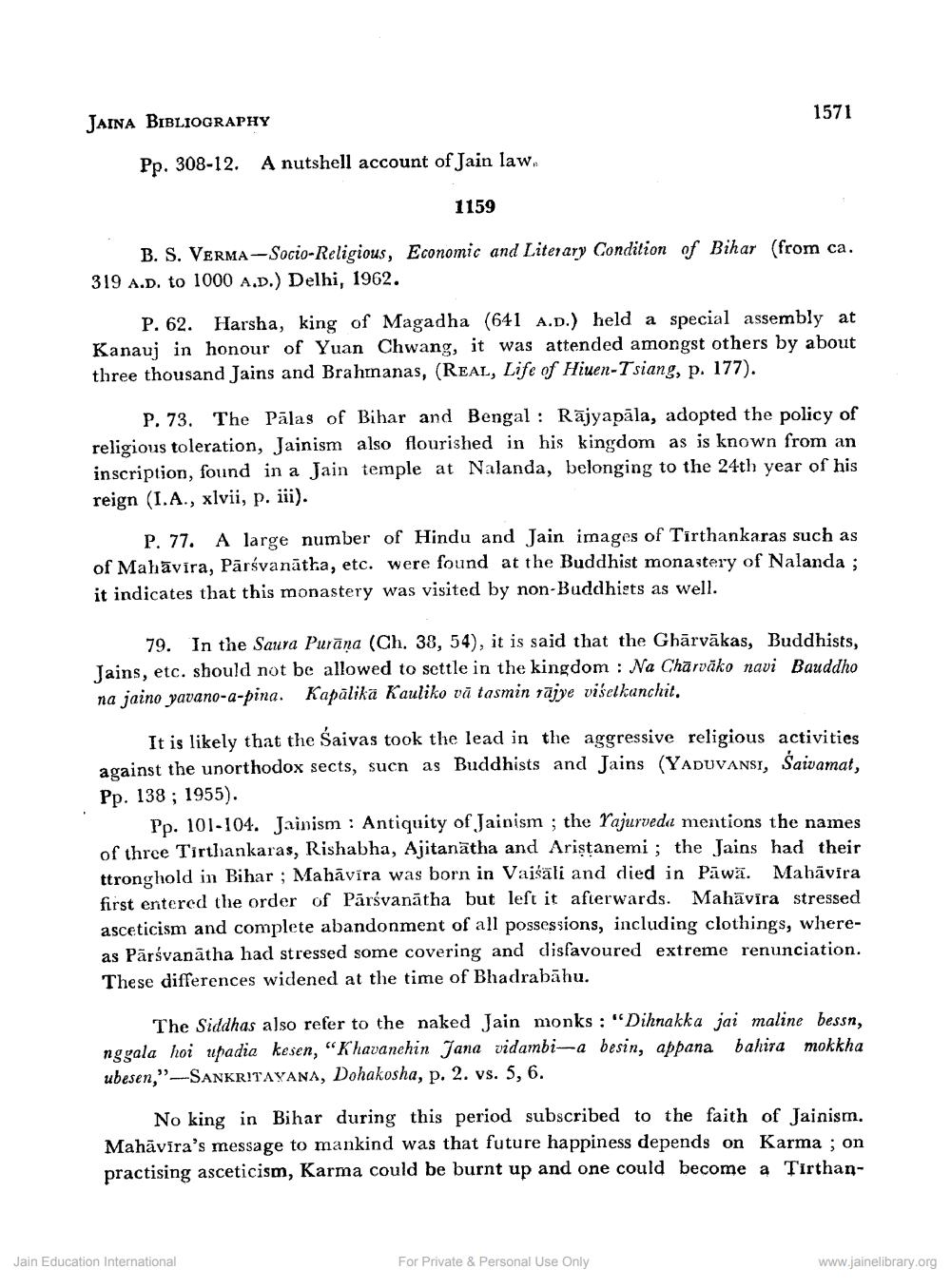________________
JAINA BIBLIOGRAPHY
1571
Pp. 308-12.
A nutshell account of Jain law.
1159
B. S. Verma --Socio-Religious, Economic and Literary Condition of Bihar (from ca. 319 A.D. to 1000 A.D.) Delhi, 1962.
P. 62. Harsha, king of Magadha (641 A.D.) held a special assembly at Kanauj in honour of Yuan Chwang, it was attended amongst others by about three thousand Jains and Brahmanas, (REAL, Life of Hiuen-Tsiang, p. 177).
P. 73. The Pālas of Bihar and Bengal : Rajyapāla, adopted the policy of religious toleration, Jainism also flourished in his kingdom as is known from an inscription, found in a Jain temple at Nalanda, belonging to the 24th year of his reign (I.A., xlvii, p. iii).
P. 77. A large number of Hindu and Jain images of Tirthankaras such as of Mahāvīra, Pārsvanātha, etc. were found at the Buddhist monastery of Nalanda ; it indicates that this monastery was visited by non-Buddhists as well.
79. In the Saura Purāna (Ch. 38, 54), it is said that the Ghārvākas, Buddhists, Jains, etc. should not be allowed to settle in the kingdom : Na Chārvāko navi Bauddho na jaino yavano-a-pina. Kapālika Kauliko vā tasmin rājye viselkanchit.
It is likely that the Saivas took the lead in the aggressive religious activities against the unorthodox sects, sucn as Buddhists and Jains (YADUVANSI, Šaivamat, Pp. 138 ; 1955).
Pp. 101-104. Jainism : Antiquity of Jainism ; the Yajurveda mentions the names of three Tirthankaras, Rishabha, Ajitanätha and Aristanemi; the Jains had their ttronghold in Bihar ; Mahāvīra was born in Vaišali and died in Pāwā. Mabāvira first entered the order of Pārsvanātha but left it afterwards. Mahāvīra stressed asceticism and complete abandonment of all possessions, including clothings, whereas Pārsvanātha had stressed some covering and disfavoured extreme renunciation. These differences widened at the time of Bhadrabāhu.
The Siddhas also refer to the naked Jain monks : "Dihnakka jai maline bessn, nggala hoi upadia kesen, "Khavanehin Jana vidambiwa besin, appana bahira mokkha ubesen," --SANKRITAVANA, Dohakosha, p. 2. vs. 5, 6.
No king in Bihar during this period subscribed to the faith of Jainism, Mahāvīra's message to mankind was that future happiness depends on Karma ; on practising asceticism, Karma could be burnt up and one could become a Tirthan
Jain Education International
For Private & Personal Use Only
www.jainelibrary.org




